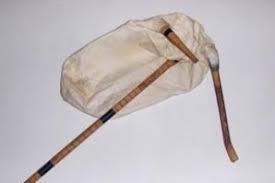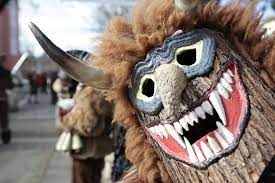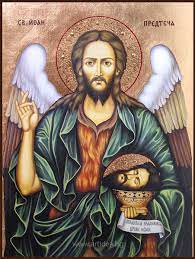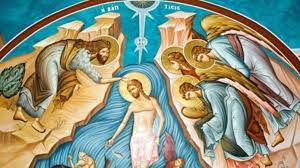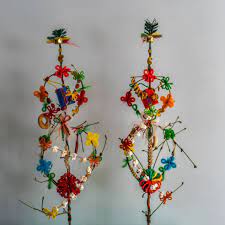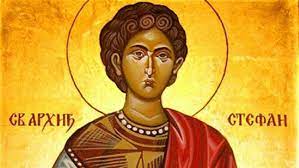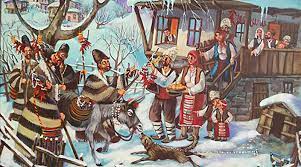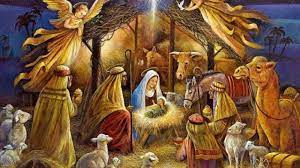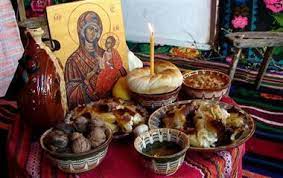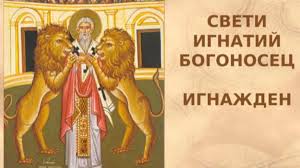The bagpipe is a brass and wind instrument. It is found in almost all folklore areas. After the kavala and gudukulka, the bagpipe occupies a worthy place in terms of popularity. It is known even in the ancient culture of Asian countries. Today it is found in almost all European nations. There are three types of bagpipes in Bulgaria - kaba, dzura and Macedonian. The Kaba bagpipe is characteristic...
Excerpts from the folklore collection and description of the main symbols in Bulgarian folklore
The collection is an encyclopedia that can be read all the time and not necessarily all of it. The old traditions of every nation are valuable. To better understand the present and make our way to the future, we need to know our past well. In order for humanity to exist and live in peace and harmony, order is needed. In the old Bulgarian traditions, we find that cosmic order, that hierarchy that has helped us survive over the centuries.
The cookers
Kukeri are Bulgarian ritual carnival figures, men predestined as beasts or as the typical characters: the grandmother, the grandfather, the publican, the king). Their main purpose is to ward off evil forces. They are also called chaushis, babugers, stanchinaris, dervishes, old men, saturs or jamalars. The games are performed only by men, mostly bachelors. These evil chasers perform their New Year's rituals...
Midsummer - January 7
Christianity dedicates this holiday to one of the greatest prophets, who zealously preached the coming of Jesus Christ to the people - namely, John the Baptist or the Forerunner. He is revered as the protector of brotherhood and godfatherism. Therefore, on this holiday at noon, the newlyweds visit the house of their brother-in-law and best men and bring them brandy, ...
Epiphany or Jordan Day - January 6
Epiphany is one of the most ancient Christian holidays. This is the day that John the Baptist baptized Jesus Christ in the Jordan River. After the sacrament, people saw with their own eyes the Christian trinity of Father (voice), Spirit (dove perched on Christ's shoulder) and Son (earthly man) and began to believe. That is why the day is also called Epiphany. With the baptism of water, the world…
Read the full post →„Богоявление или Йордановден – 6 януари“
Survaki – January 1
On January 1, the church celebrates the great Christian thinker, philosopher and writer St. Basil the Great (c. 330-379). He gives realization to the /christian law of love and forgiveness by preaching kindness and charity. He is the organizer of the first charitable monastic center in Caesarea, where the sick and suffering receive free aid. That is why Basil was called "great" and after ...
St. Stephen's Day – December 27
The day of St. Stefan closes the circle of the old year, because with this day the Christmas holidays end. On this day, the family gathers around a common table with meat dishes. You can read more about national holidays and customs here Folklore collection "Once upon a time - customs and worldview of the Bulgarians" Saint Stephen is the founder of the first ...
Christmas carolers
Christmas Eve and Christmas, in addition to family holidays, are also generally village holidays. Even a week before the holiday, the carol groups gather to remember the old songs and learn new ones. The leader of a squad was the oldest and was called Stanenik. Not everyone and not always could carol. But a guy who wasn't a caroler...
Christmas – December 25
The day after Christmas Eve is Christmas Day. Here again Christian and old folk beliefs are intertwined. At Christmas, the 40-day fast ends. The Church celebrates the birth of the Savior, and the people - the birth of the new Sun. The main symbolism of Christmas is eternal nature, dying and being reborn again and again. The Christmas table is rich and mostly with...
Christmas Eve – December 24
Christmas Eve is one of the most important days of the year for a Bulgarian. The holiday is not movable and is also called Little Christmas. In our native folklore, the rituals and rites with which the birth of the son of God is welcomed are rich. There are many symbols that accompany the holiday. In the holiday-ritual system of Christmas Eve and Christmas, the biblical ...
IGNAZHDAY – December 20
According to the proto-Bulgarian calendar, this is the single day, which is not included in any of the months. It is considered the beginning of the new year. The day marks the winter solstice, when the day is shortest and the night is longest. In the distant past, this astronomical phenomenon occurred around December 20. In 2023, the winter solstice falls on …

